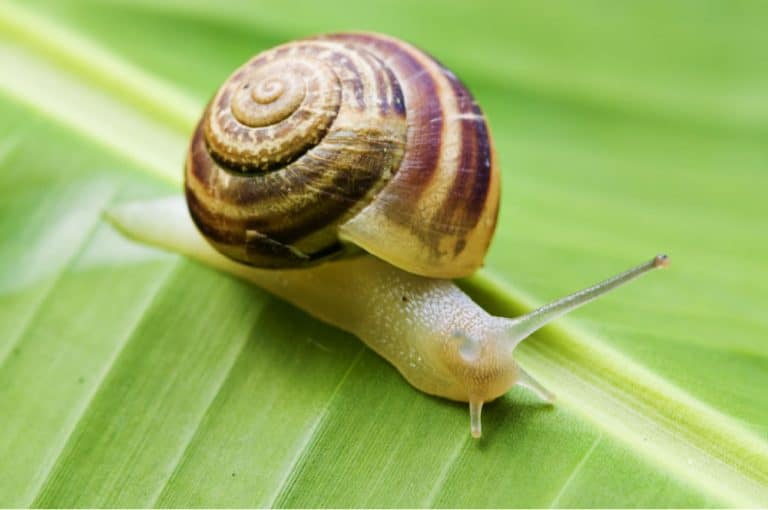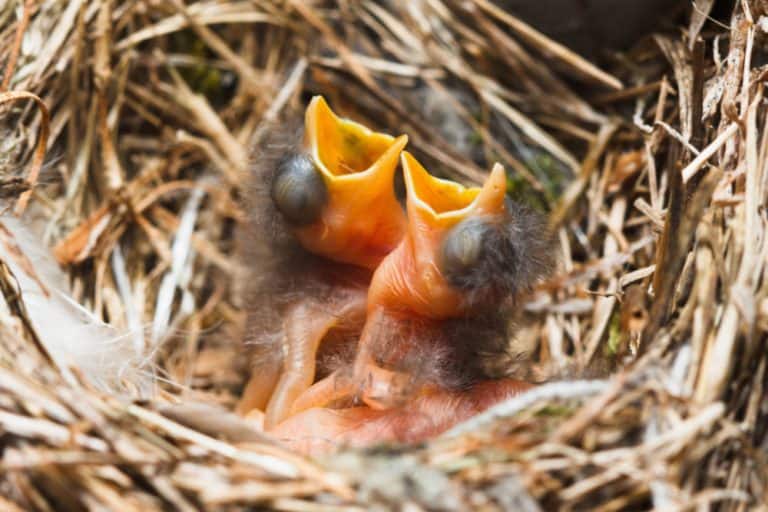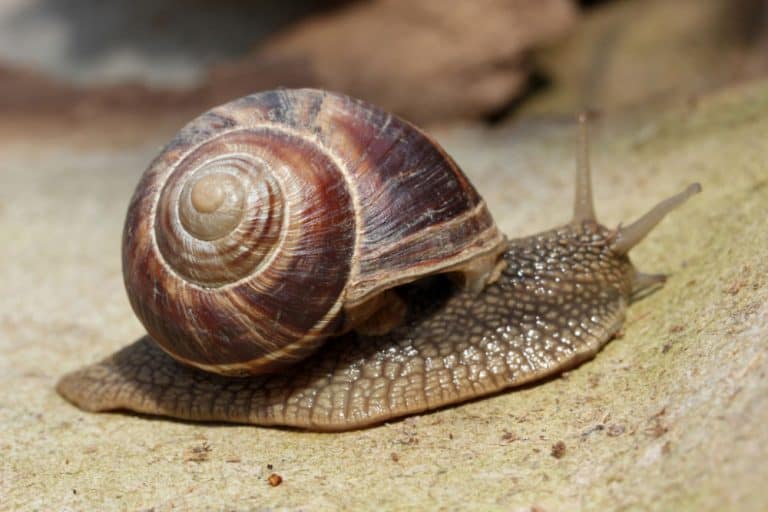Do Skunks Make Good Pets?
Did you know that skunks have been household pets for a few decades now? These exotic pets can be fun to have and a great talking point. But do skunks make good pets? Let’s talk about everything skunk!
Do Skunks Make Good Pets?
For the right owner, a skunk can make a fantastic pet. Skunks are surprisingly loveable, energetic, and playful. Your skunk will be very attached to their families. But, they don’t make good pets for everyone. If you’ve never owned a pet before, a skunk is too advanced. Skunks can be a little challenging, and they are not the best to have with small children.

Pros Of Owning A Skunk
To find out if a skunk is the right pet for you, let’s go over a few pros. These are all the reasons that make owning a skunk rewarding.
Don’t Stink
Many people think of a foul smell when they think about skunks. You might be turned off at the thought of owning a skunk because of this smell. But you don’t have to worry about your house smelling like a skunk when you own one. Pet skunks have protective glands that produce their infamous foul odor. When they are frightened, they spray this oil in self-defense. Pet skunks have this glad removed by the time that they are a year old. So you don’t have to worry about your skunk spraying you and your house.
Cuddly
You wouldn’t think of a skunk as being the cuddly sort, but it is true. Skunks behave much like a dog or cat and will seek your attention. Anywhere you go, your skunk will be right there with you. Your skunk will form a close bond to you and your family, and they don’t like to be alone often. They will spend their days playing and getting all the attention in the world.
Litter Training
Skunks are intelligent creatures and can be trained to use the litter box. Litter training makes keeping the house clean more manageable, and it’s safer than letting them outside. When you bring your skunk home, they will pick corners that they prefer to go in. Just place a box in those corners, and you are all set. But they aren’t like cats and only need one or two boxes. You will likely have to have several throughout the house.
Lifespan
Your pet skunk will have an average life expectancy of 10 years. That’s about the same as some dogs and cats, which is great because it gives you a decade of love and happiness with your furry friend.
Great With Pets And Kids
If you have dogs or cats, your skunk will get along great with them. And children ten and up are a perfect match. Getting a skunk as a baby and raising them is imperative to how well they mix with your family. Rescuing a skunk is possible, but they might have a harder time adjusting. Baby skunks will learn how to play with your pets and kids without biting. And they will form bonds like any other pet will.
Hypoallergenic
Skunks shed less than cats and dogs. They typically only go through only two large sheds a year to prepare for new seasons. This can be great news for those suffering from seasonal allergies, as their hair won’t bother them. But skunks still produce dander so that you could be allergic to your skunk.

Cons Of Owning A Skunk
We already mentioned that skunks are high maintenance. They require lots of attention and special care. These cons are things that make people turn away from wanting a skunk. But if none of these bothers you, then you are a good candidate for a pet skunk.
Mischievous
The biggest issue that owners have is keeping their skunks out of trouble. They will get into everything, even if you think it has been locked up. When they are bored, they will start to steal things from around the house. Or climb and scratch at furniture to get into something new. They often find themselves in trouble and need a lot of supervision.
Laws
One thing that most people don’t think about is that skunks aren’t legal everywhere. They are only permitted in 17 states currently, which can make it hard to find a breeder. And even if they are legal in your state, you might have to get special permits to own one.
Can’t Cage Them
Unlike guinea pigs or rabbits, skunks do not stay in a cage. They usually roam your home and only get in a cage when you are gone. Some people even dedicate an entire room for them that is safe. A whole room gives them plenty of space to move about. And once you come home, they can come out to socialize. But doing this is hard, and you have to skunk-proof everything. Doors, walls, and carpet are all likely to be torn up by the skunk’s sharp claws and teeth.
Complicated Diet
Another reason that most amateur pet owners can’t take care of a skunk is their complicated diets. Skunks need a wide variety of foods, and there is no kibble available for them. We will talk about this in more in our basic care guide below.
Cost
The average cost of a skunk is $150-$500. And that is not including everything you will need to bring a skunk home. Between vet visits, vaccinations, supplies, and permits, you will need another $1,500 to get started.
Vets
If you think finding a skunk breeder is hard, just wait until you try to find a vet for one. Vets specialized in skunks are hard to come by. And when you do find one, they are likely far away and expensive to see. Everything medically costs more for a skunk.
Sleep Training
And finally, we come to sleep training. Skunks are naturally crepuscular, which means they are active in the early morning and late evening. But once you bring your skunk home, it is time to start training them to be on your schedule. Sleep training takes some time, and they are likely to get grouchy during it. But once your skunk is on the same schedule as you, its smooth sailing from there. Well sort of.
Basic Care
Skunks are pretty easy to care for once you get the hang of it. They just require a different kind of care than most pets. Your skunk walks the fine line of exotic pet and housepet. As mentioned before, skunks aren’t a caged animal. They need to roam and be free. Caging a skunk for too long could cause emotional distress and behavioral problems. But you will want a large crate for when you are gone and a carrier for vet visits. But what else do they need?
Soft Bedding
Blankets and soft fabric are all a skunk needs to make a happy nest. Some even love dog beds and cat trees. But their instinct will be to create a snug nest of only the softest materials. So make sure you always have plenty to choose from.
Litter Box And Litter
We already mentioned that you would need several litter boxes throughout your home. But what kind of litter is best for a skunk? Many people choose wood pellets, paper litter, or even unscented cat litter. As long as the litter box is kept clean and scooped daily, your skunk should take right to it.
Diet
Here is where the skunk becomes a little tricky. A skunk eats almost anything that they can get ahold of in the wild. But in captivity, it is crucial to make sure it is a well-balanced diet. Fresh fruits, vegetables, and lean meats should make up most of the menu. You will also want to add in cooked whole grains for energy, and some people even add a little dog kibble. And as for treats, you can give your skunks crickets, worms, and other insects.
Exercise
Domestic skunks usually have a problem with obesity. So you will need to play with your skunk daily to keep them active. Playing games and having small training sessions will keep their minds and bodies fit. If you want your skunk to have a little more exercise, you could take them on a walk with a fitted harness. Never leave your skunk outside alone because they will run away and not come back.
Health
If you get a skunk, they will need to be seen by a vet at least twice a year. They will get shots and overall screening to make sure they are healthy. Skunks are notorious for keeping illnesses hidden from their owners. So even if your skunk seems fine, checkups could save their life. Some common health concerns for skunks are:
- Obesity
- Heart conditions
- Fatty liver disease
- various viruses
The sooner a vet catches any of these common issues, the faster your skunk can be on the way to recovery.
Are You Ready For A Skunk?
If having a skunk seems like your next big adventure, congratulations! Pet skunks can be just as rewarding as any traditional lappet. They can be a great conversation starter and bring awareness to the species.
But if you don’t think the skunk is right for you, stay tuned. There are thousands of pets out there. And we are sure that one of them is waiting for you.









Hey! Thanks for posting this blog with us. In the case of wild skunks, the answer is NO. But domesticated skunks are known to be quite docile and loving. Even though skunks are viewed as a nuisance, they actually make an amazing pet.